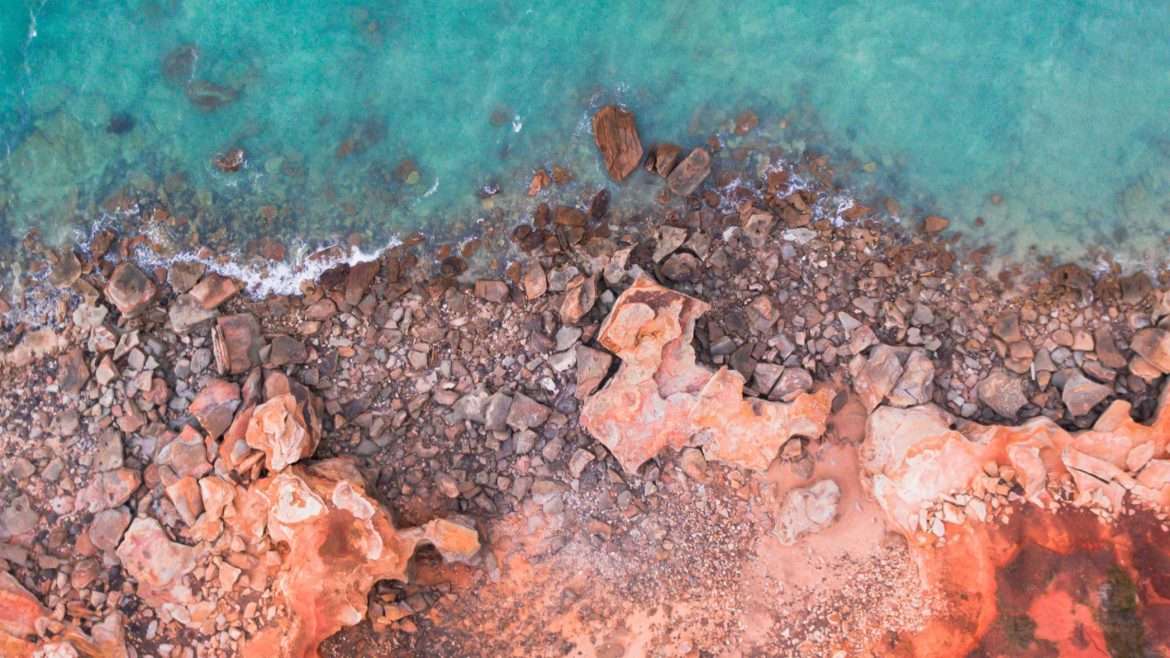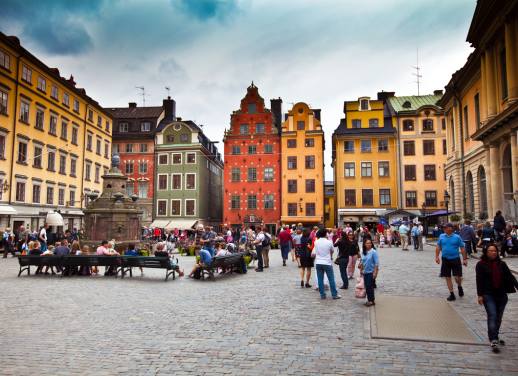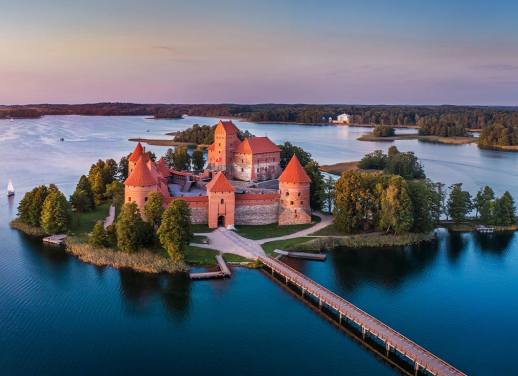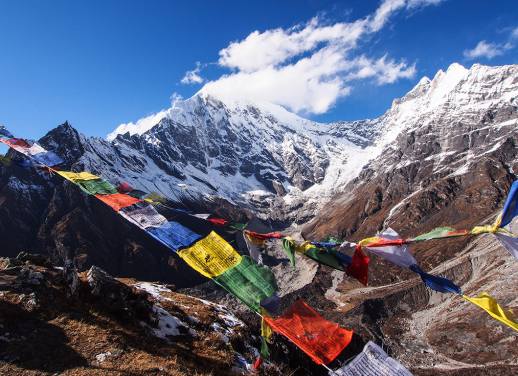Travel isn’t about numbers or data sets. It’s about people, cultures, connections and life-changing moments that can’t be quantified.
And when it comes to building a more equal society, we believe that, as a travel company, it’s crucial for us to remain transparent and accountable to local communities. For that reason, I’d like to share how Intrepid has progressed our First Nations reconciliation journey in Australia over the past year — including where we’ve fallen short.
In July 2020, Intrepid launched its second (Innovate) Reconciliation Action Plan (RAP), which sets 90 actions we will take by July 2022 to advance our contribution to reconciliation in Australia.
Halfway into the two-year journey, our one-year report details the progress we’ve made, where we’ve got more work to do and some of our learnings so far.
Scroll down to find the full report
The role of tourism in reconciliation
Reconciliation is about building respectful relationships with Aboriginal and Torres Strait Islander peoples.
As an Australian headquartered business, we’re deeply committed to this and believe the tourism sector has a unique opportunity to advance reconciliation in Australia. Travel creates connection, understanding and empathy between peoples. It also provides job opportunities and economic development in remote and rural areas.
The pandemic has provided opportunities for us to support First Nations tourism, thanks to a boom in domestic travel in Australia — but we’ve also experienced some setbacks and challenges.
Growth in local travel
Australians are travelling closer to home and our report reveals that despite travel restrictions during 2020/21 limiting inter-state travel, 853 customers experienced a First Nations tourism experience on Intrepid trips in Australia over the past year.
It also shows we’ve grown the number of Aboriginal and Torres Strait Islander experiences on our trips from 12 to 40 (or 233 per cent) over the course of the year. Nearly half our Australian itineraries now include a First Nations experience.
These experiences enrich trips and provide an opportunity for cultural exchange and new connection.
For example, on the Queensland Coast & Island Adventure in North Queensland, at Mungalla Station travellers meet the Aboriginal owners of the land, the Nywaigi People. Visitors hear ancient stories and learn about connection to country, including the Mungalla wetlands and the aquatic birdlife that inhabit the area.
Or, thousands of kilometres away in South Australia, travellers on the Flinders Ranges Explorer join an Adnyamathanha Aboriginal guide for an informative walk into Sacred Canyon in the Ikara-Finders Ranges National Park. They learn about cultural significance of the site and the ancient rock engravings from the perspective of the Adnyamathanha people.
As we expand our range of trips in Australia, we aim to work with new First Nations partners and businesses all over the country and to develop strong relationships for the future.
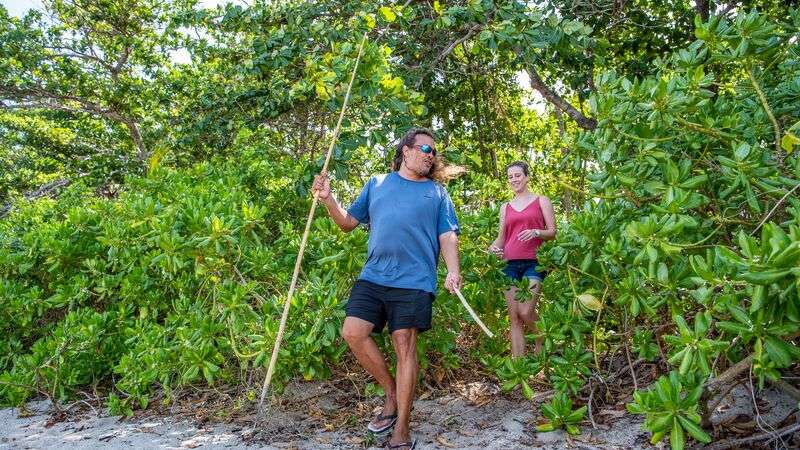
Establishing lasting relationships
But we know that this work is far bigger than us or the trips that our customers book with us.
We believe that as the largest adventure travel company globally, we can help support and grow the broader First Nations tourism sector in Australia. You might have noticed an increase in First Nations content across our social media channels and included in our emails.
For example, in April 2021 we partnered with our friends at Welcome to Country for National Reconciliation Week. This campaign aimed to encourage Intrepid customers to book an Aboriginal and Torres Strait Islander owned and operated tourism experience directly through Welcome to Country’s online marketplace. This generated awareness of and drove bookings directly to First Nations operators.
We’re in the early stages of this part of our journey and we’re committed to continuing to build on this. Part of that includes exploring ways we can work with and commission more First Nations content creators to tell their stories across our channels over the next 12 months.
Challenges and results
The pandemic, however, has thrown plenty of unexpected challenges our way and we haven’t achieved everything we set out to.
One of those includes a shortage of qualified tour guides in Australia. This is due to the increase in domestic travel demand, as well as many tour guides moving out of the tourism industry during 2020 due to job opportunities in other sectors. To address this, we’re committed to looking at ways we can support the training and development of Aboriginal and Torres Strait Islander tour guides to pursue a career in tourism.
By far the biggest challenge for Intrepid is the ongoing and devastating impacts of COVID-19 on communities and people around the world. With international borders in Australia and many countries around the world remaining closed, our business is a fraction of its size pre-pandemic, thereby financially impacting the communities we visit, the guides we work with and the businesses we support on our tours.
Despite these ongoing challenges, I’m proud that Intrepid has completed 32 per cent of our Innovate RAP, with 46 per cent still in progress. We’re on track to achieve 70 per cent of our plan by the end of 2021. Unfortunately, the ongoing financial impacts of the pandemic means that we are likely to fall short on 22 per cent of our plan, which may need to be implemented later in 2022 or beyond.
We know this is just the beginning of our reconciliation journey, and that we must continue to be transparent and accountable in our efforts to support First Nations communities, both within Australia and beyond. I hope that by sharing our journey, we can inspire others to embark on their own reconciliation paths.
Read the full report here.
–
As an Australian-owned business, we acknowledge the Traditional Owners of Country throughout Australia and their continuing connection to land, waters and community. We pay our respects to them and their cultures, and to their Elders past, present and future.

